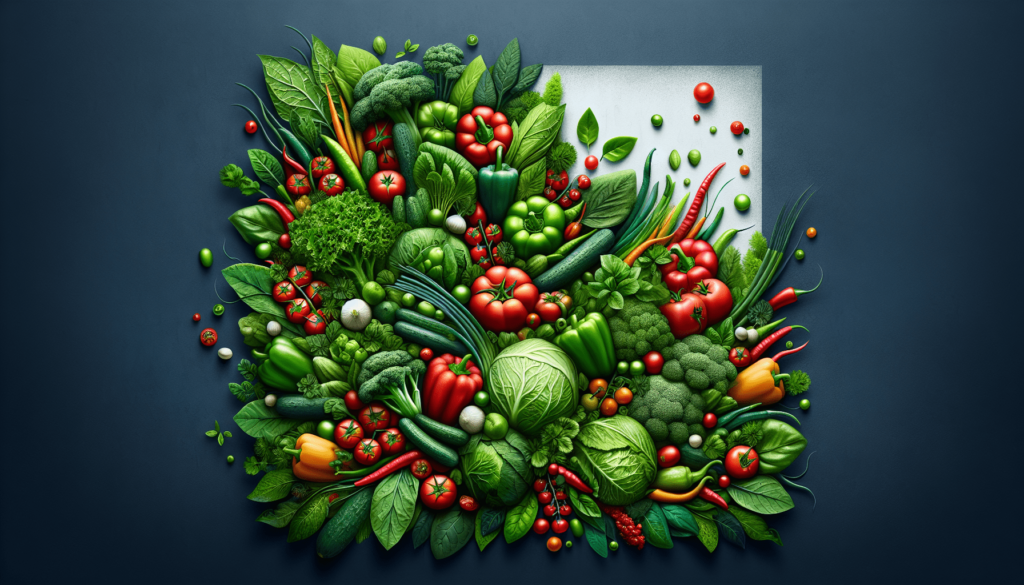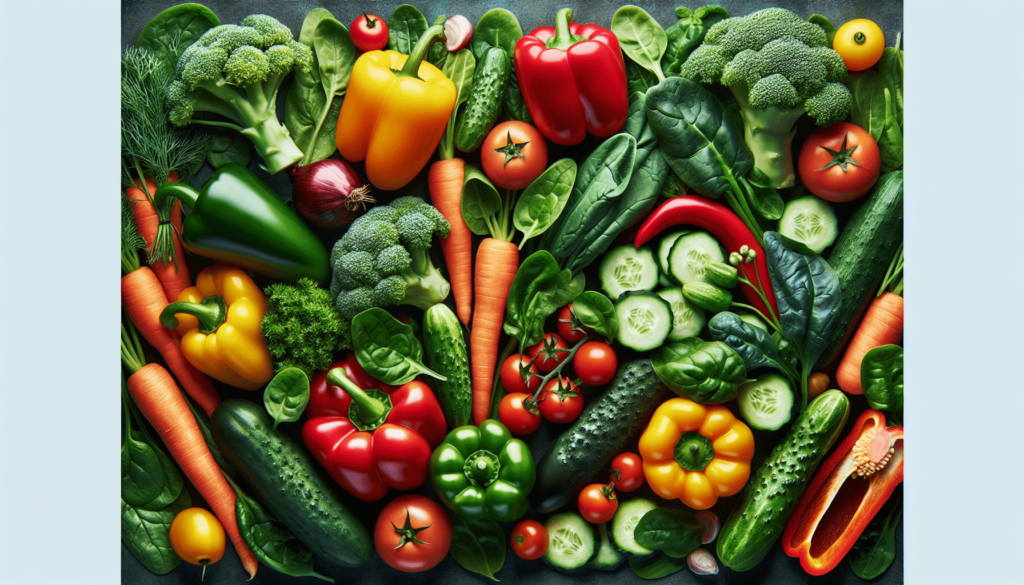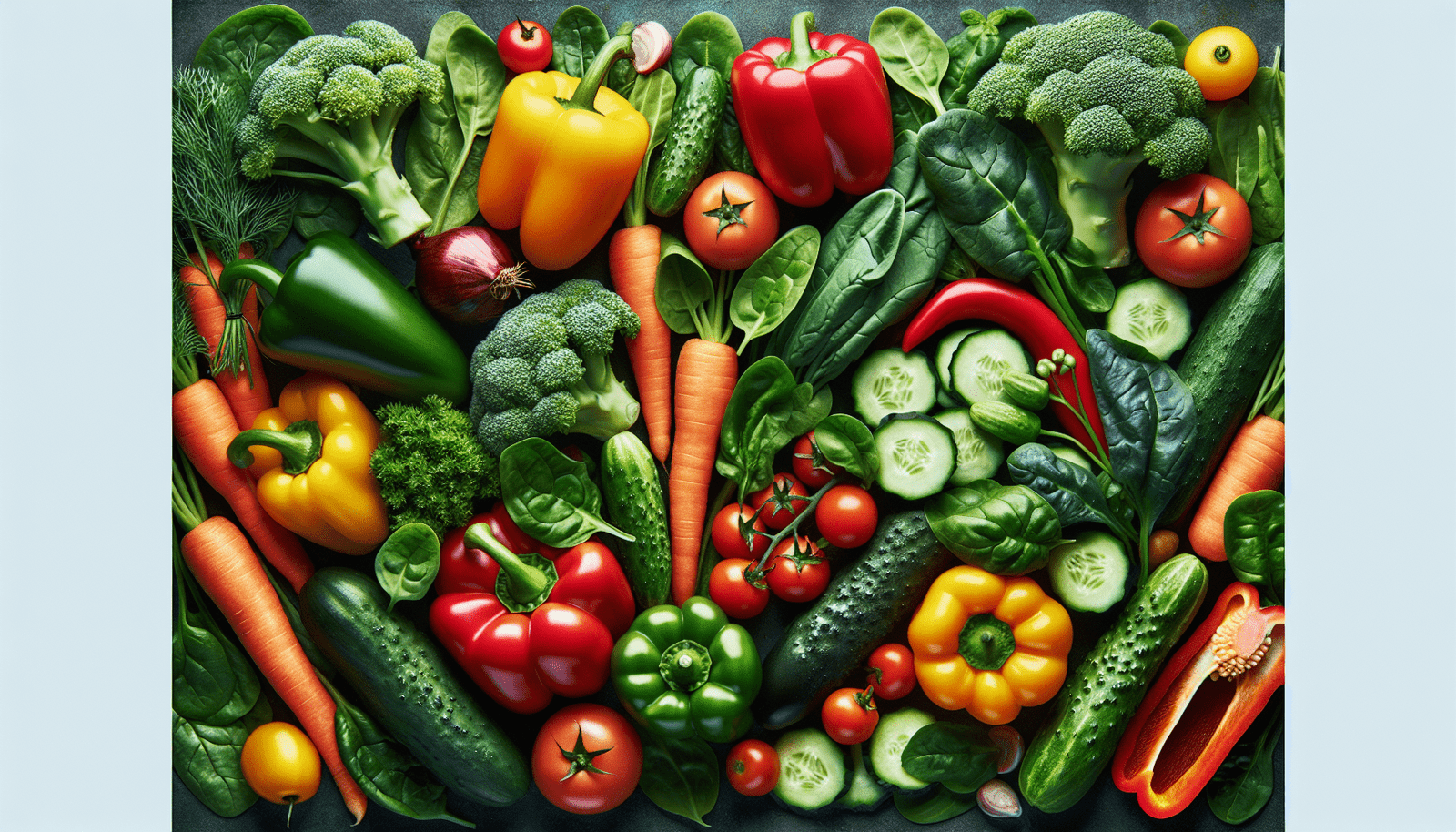Getting The Most Nutrition From Your Vegetables
Are you maximizing the nutritional benefits of the vegetables you consume on a daily basis? In this article, we will explore various ways to ensure you are getting the most nutrition from your vegetables. From proper storage to cooking methods, we will cover everything you need to know to get the most out of these nutrient-packed foods.
Choosing the Right Vegetables
When it comes to maximizing the nutrition you get from your vegetables, it all starts with choosing the right ones. Opt for a variety of colorful vegetables to ensure you are getting a wide range of vitamins, minerals, and antioxidants.
It’s important to consider the seasonality of vegetables as well, as they tend to be fresher and more nutrient-dense when they are in season. Additionally, try to choose organic vegetables whenever possible to minimize exposure to pesticides and other harmful chemicals.
Proper Storage Techniques
To ensure that your vegetables retain their nutritional value, it is crucial to store them properly. Some vegetables are best stored in the refrigerator, while others do better at room temperature. For example, leafy greens like spinach and kale should be stored in the refrigerator in a plastic bag to maintain their crispness and nutritional content.
Root vegetables such as carrots and potatoes, on the other hand, do well in a cool, dark place like a pantry. Make sure to keep them away from ethylene-producing fruits like bananas, apples, and avocados, as this can cause them to ripen too quickly and lose nutrients.
Washing and Preparing Vegetables
Before consuming your vegetables, it is important to wash them thoroughly to remove any dirt, bacteria, or pesticide residue. Use a clean brush or your hands to scrub the vegetables under running water, making sure to get into all the nooks and crannies.
When it comes to preparing your vegetables, try to avoid overcooking them, as this can cause them to lose some of their nutritional value. Steaming, sautéing, and roasting are all great methods for preserving the nutrients in your vegetables while still bringing out their natural flavors.

Maximizing Nutrient Absorption
Did you know that certain nutrients in vegetables are more readily absorbed by the body when eaten with certain fats or other nutrients? For example, the fat-soluble vitamins A, D, E, and K are better absorbed when consumed with a source of healthy fat like avocado or olive oil.
Additionally, pairing vegetables with vitamin C-rich foods such as citrus fruits, bell peppers, or strawberries can enhance the absorption of iron from plant-based sources like spinach and lentils. To maximize the benefits of your vegetables, try to include a variety of nutrients in each meal.
Eating Vegetables Raw vs. Cooked
The debate between eating vegetables raw or cooked has been ongoing for years, with proponents on both sides arguing for the benefits of their preferred method. While raw vegetables tend to retain more of their water-soluble vitamins like vitamin C and B vitamins, cooking can actually enhance the bioavailability of certain nutrients.
For example, the antioxidant lycopene found in tomatoes is more easily absorbed by the body when cooked, as the cooking process breaks down the cell walls and makes it more accessible. Ultimately, the best approach is to incorporate a mix of raw and cooked vegetables into your diet to ensure you are getting a wide range of nutrients.
Sneaking in Vegetables
If you struggle to eat enough vegetables throughout the day, there are plenty of creative ways to sneak them into your meals. Try adding spinach or kale to your morning smoothie, or finely chop vegetables like carrots, bell peppers, and zucchini to mix into sauces, soups, or casseroles.
You can also experiment with spiralizing vegetables like zucchini or sweet potatoes to use in place of traditional pasta or noodles. By finding fun and inventive ways to incorporate vegetables into your meals, you can easily increase your daily intake without feeling like you are missing out on flavor or satisfaction.

The Importance of Variety
One of the keys to getting the most nutrition from your vegetables is to eat a wide variety of them on a regular basis. Different vegetables contain different combinations of vitamins, minerals, and antioxidants, so by diversifying your vegetable intake, you can ensure you are getting a broad spectrum of nutrients.
Try to incorporate vegetables of all colors into your meals, as different colored vegetables often contain different types of nutrients. For example, orange vegetables like carrots and sweet potatoes are rich in beta-carotene, while leafy greens like spinach and kale are packed with iron and vitamin K.
Seasoning Your Vegetables
Adding flavor to your vegetables can make them more enjoyable to eat and can also provide additional health benefits. Instead of relying on heavy sauces or dressings, try using herbs, spices, and citrus juices to season your vegetables.
Herbs like basil, cilantro, and parsley not only add flavor but also offer their own unique health benefits, such as anti-inflammatory and antioxidant properties. Spices like turmeric, cumin, and ginger can also add a depth of flavor while providing immune-boosting and anti-inflammatory effects.
Monitoring Portion Sizes
While vegetables are packed with essential nutrients and are low in calories, it is still important to monitor your portion sizes to ensure you are getting a balanced diet. Aim to fill half your plate with vegetables at each meal, making sure to include a variety of colors and types.
By incorporating a generous amount of vegetables into your meals, you can feel satisfied and nourished without overloading on less nutrient-dense foods like processed snacks or sugary treats. Vegetables should be the foundation of your diet, providing you with the vitamins, minerals, and antioxidants your body needs to thrive.
Buying Local and Seasonal
One of the best ways to ensure you are getting the most nutrition from your vegetables is to buy local and seasonal produce whenever possible. Locally grown vegetables are often fresher and more flavorful than those that have been shipped long distances, meaning they retain more of their nutritional value.
Seasonal vegetables also tend to be more affordable and are more likely to be at their peak ripeness and flavor. By shopping at farmers’ markets or joining a community-supported agriculture (CSA) program, you can support local farmers while reaping the benefits of fresh, nutrient-rich produce.
The Benefits of Eating the Rainbow
Have you ever heard the saying, “eat the rainbow”? This simple piece of advice encourages you to consume a wide variety of colorful fruits and vegetables to ensure you are getting a diverse array of nutrients. Each color in fruits and vegetables represents different vitamins, minerals, and antioxidants that are essential for overall health.
Red vegetables like tomatoes and bell peppers are rich in lycopene and vitamin C, while purple vegetables like eggplant and purple cabbage contain anthocyanins, powerful antioxidants that support brain health. By incorporating a rainbow of fruits and vegetables into your diet, you can easily meet your nutritional needs and support your overall well-being.
Supplementing Your Vegetable Intake
While it is always best to get your nutrients from whole foods, there are certain situations where supplementing your vegetable intake may be necessary. If you struggle to consume an adequate amount of vegetables on a daily basis, or if you have dietary restrictions that limit your vegetable intake, consider adding a high-quality vegetable supplement to your routine.
Vegetable supplements can provide a concentrated source of essential nutrients, including vitamins, minerals, and antioxidants, to fill in any nutritional gaps in your diet. Look for supplements made from organic, non-GMO ingredients to ensure you are getting the highest quality product possible.
Conclusion
In conclusion, getting the most nutrition from your vegetables is essential for supporting your overall health and well-being. By choosing a variety of colorful vegetables, storing them properly, washing and preparing them with care, and incorporating them into your meals in creative ways, you can ensure you are maximizing the nutritional benefits of these nutrient-packed foods.
Remember to eat a wide variety of vegetables, season them with herbs and spices, monitor your portion sizes, and buy local and seasonal produce whenever possible. By following these tips and making vegetables the foundation of your diet, you can enjoy the many health benefits that come from nourishing your body with these nutrient-dense foods.

